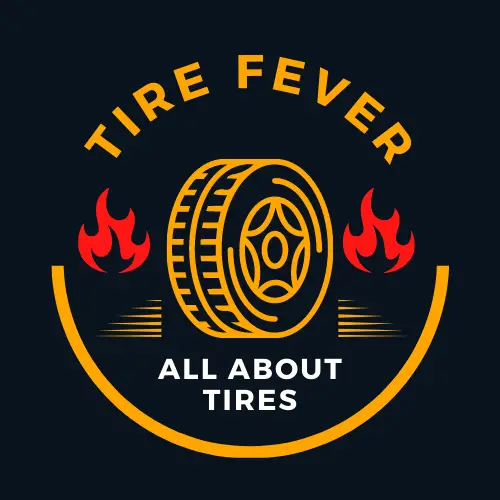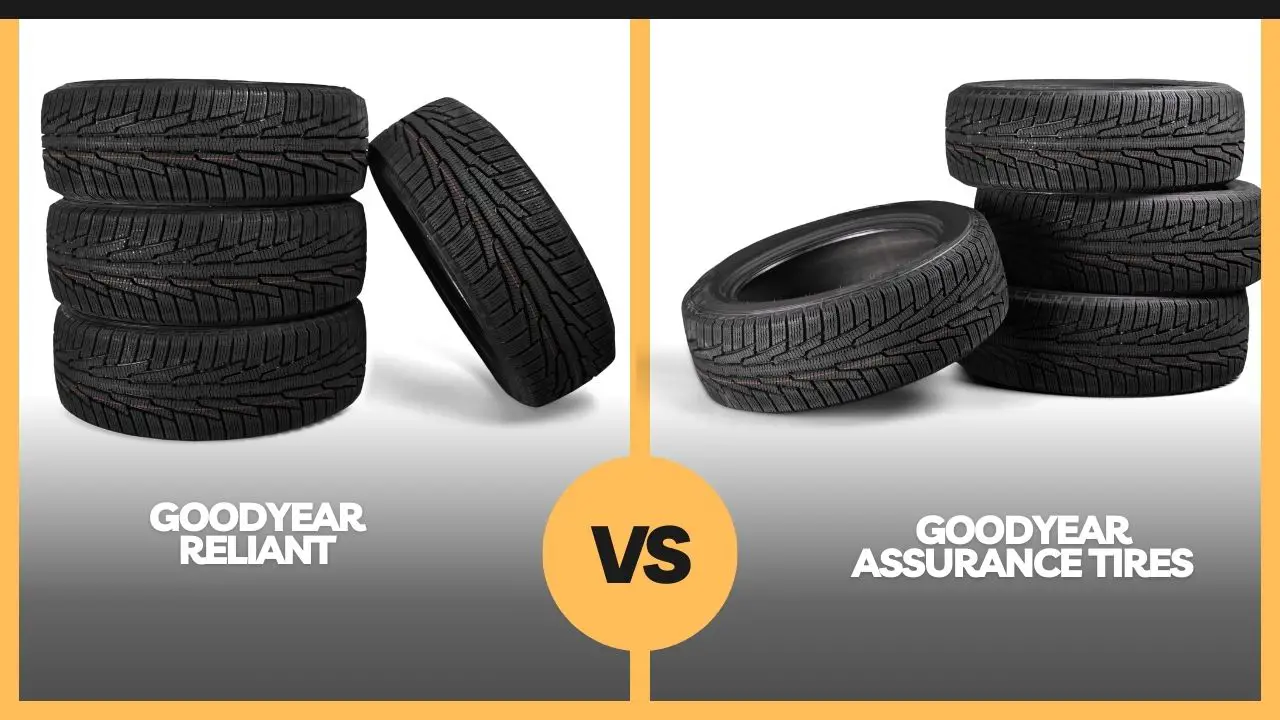Are you in the market for new tires but feeling overwhelmed by the options? Specifically, are you torn between Goodyear Reliant and Goodyear Assurance tires? Well, fear not, because in this blog post, we will explore the differences between these two popular tire models and help you make an informed decision.
When it comes to choosing the right tires for your vehicle, there are several factors to consider, such as performance, durability, and price. Both the Goodyear Reliant and Goodyear Assurance tires have their own unique features and benefits that cater to different driving needs and preferences. So, let’s dive in and discover which tire is the perfect fit for you!
The Historical Journey of goodyear reliant
The Goodyear Reliant was a line of compact cars produced by the Goodyear Tire and Rubber Company from 1981 to 1984. It was Goodyear’s attempt to diversify its business and enter the automotive industry. The Reliant was designed to be an affordable and fuel-efficient vehicle, targeting the growing demand for compact cars during that time.
One of the noteworthy products in the Goodyear Reliant lineup was the Reliant K. Introduced in 1981, it was a four-door sedan powered by a 2.2-liter four-cylinder engine. The Reliant K offered a comfortable ride and decent fuel economy, making it a popular choice for budget-conscious consumers. Another notable variant was the Reliant LE, which featured a more luxurious interior and additional features.
Despite its initial promise, the Goodyear Reliant faced several challenges. The company struggled to compete with established automakers, and the Reliant’s sales were disappointing. Goodyear eventually decided to exit the automotive industry and sold the rights to the Reliant to the French automaker Renault in 1984. This marked the end of the Goodyear Reliant’s production, leaving behind a brief but interesting chapter in the company’s history.
The Historical Journey of goodyear assurance tires
Goodyear Assurance tires have a rich history that dates back to the early 20th century. The Goodyear Tire & Rubber Company, founded in 1898, introduced the Assurance line in 2004 as a reliable and durable option for passenger vehicles. These tires quickly gained popularity for their all-season performance and long-lasting tread life.
Over the years, Goodyear has expanded the Assurance line to include various models tailored to different driving needs. Noteworthy products include the Goodyear Assurance TripleTred, which offers enhanced traction in wet, dry, and snowy conditions, and the Goodyear Assurance Fuel Max, designed to improve fuel efficiency. These tires have consistently received positive reviews for their comfort, handling, and overall performance.
Today, Goodyear Assurance tires continue to be a trusted choice for drivers worldwide, providing a balance of safety, performance, and longevity. With ongoing advancements in tire technology, Goodyear remains committed to delivering innovative products that meet the evolving demands of modern drivers.
You May Also Like:goodyear reliant vs assurance tires
In a hurry here are our top 6 tire recommendations:
- Best Budget Tires
- Best Mid-Range Tires
- Best All-Season Tires
- Best Summer Tires
- Best Winter Tires
- Best Performance Tires
goodyear reliant : Pros and Cons
When it comes to tire selection, every tire brand showcases a distinct array of advantages and disadvantages. Below are the pros and cons of goodyear reliant
Pros:
- Excellent traction on both wet and dry roads
- Durable and long-lasting
- Smooth and comfortable ride
- Good fuel efficiency
- Reasonably priced
Cons:
- Not suitable for snowy or icy conditions
- May produce some road noise
- Limited availability in certain sizes
goodyear assurance tires : Pros and Cons
When it comes to tire selection, every tire brand showcases a distinct array of advantages and disadvantages. Below are the pros and cons of goodyear assurance tires
Pros:
- Excellent traction and grip on both wet and dry roads
- Long-lasting tread life
- Smooth and comfortable ride
- Low road noise
- Good value for money
Cons:
- Not suitable for extreme winter conditions
- Limited availability in certain sizes
- Some users report decreased fuel efficiency
Also Read: goodyear assurance all season vs michelin crossclimate 2
Comparison: goodyear reliant vs goodyear assurance tires Key Differences
When comparing goodyear reliant and goodyear assurance tires, there are several key differences to consider. These differences include pricing, warranties, fuel efficiency, comfort, wet performance, dry performance, winter performance, and noise performance. Check out these other comparisons.
Let’s now dive deeper into how goodyear reliant and goodyear assurance tires perform in each of these key focus areas.
Pricing:
- Goodyear Reliant tires are generally priced lower than Goodyear Assurance tires.
- Reliant tires are budget-friendly options suitable for everyday driving.
- Assurance tires are priced higher due to their advanced features and technologies.
- Assurance tires offer better traction, handling, and overall performance compared to Reliant tires.
- Reliant tires are more suitable for standard sedans and compact cars, while Assurance tires are designed for a wider range of vehicles including SUVs and trucks.
Warranties:
- Goodyear Reliant tires have a limited warranty of up to 65,000 miles, while Goodyear Assurance tires have a limited warranty of up to 80,000 miles.
- Reliant tires offer a 30-day satisfaction guarantee, allowing customers to exchange them if not satisfied, while Assurance tires do not have this guarantee.
- Reliant tires have a 2-year roadside assistance program, providing help in case of emergencies, whereas Assurance tires do not offer this service.
- Assurance tires come with a 6-year tread life limited warranty, ensuring they will last for a specified period, while Reliant tires do not have this specific warranty.
Fuel Efficiency:
- Goodyear Reliant tires have a lower fuel efficiency compared to Goodyear Assurance tires.
- Goodyear Assurance tires are designed with fuel-saving technology to improve fuel efficiency.
- Reliant tires may have a higher rolling resistance, leading to increased fuel consumption.
- Assurance tires are engineered to reduce rolling resistance, resulting in better fuel economy.
Comfort:
- The Goodyear Reliant tires offer a comfortable ride with their optimized tread pattern and advanced rubber compound.
- The Goodyear Assurance tires provide a smoother and quieter ride due to their refined tread design and noise-reducing technology.
- Reliant tires may have a slightly firmer ride compared to Assurance tires.
- Assurance tires prioritize comfort and minimize road noise for a more enjoyable driving experience.
Wet Performance:
- Goodyear Reliant tires have a specialized tread pattern that enhances wet performance.
- Goodyear Assurance tires have a wider circumferential groove design for improved water evacuation.
- Reliant tires offer better traction on wet roads due to their unique tread compound.
- Assurance tires have a higher number of biting edges for enhanced grip on wet surfaces.
- Reliant tires provide superior hydroplaning resistance with their advanced tread design.
- Assurance tires offer improved wet braking performance with their optimized tread pattern.
Dry Performance:
- Goodyear Reliant tires have a solid center rib for enhanced stability and precise handling on dry roads.
- Goodyear Assurance tires feature a tread pattern with multiple biting edges for improved grip and traction on dry surfaces.
- Reliant tires offer better dry performance due to their stiffer sidewalls, which provide better cornering stability.
- Assurance tires have a more advanced tread compound that offers better dry traction and shorter braking distances.
- Reliant tires have a lower rolling resistance, resulting in improved fuel efficiency on dry roads.
Winter Performance:
- Goodyear Reliant tires have a specialized tread pattern that enhances wet performance.
- Goodyear Assurance tires have a wider circumferential groove design for improved water evacuation.
- Reliant tires offer better traction on wet roads due to their unique tread compound.
- Assurance tires have a higher number of biting edges for enhanced grip on wet surfaces.
- Reliant tires provide superior hydroplaning resistance with their advanced tread design.
- Assurance tires offer improved wet braking performance with their optimized tread pattern.
Noise Performance:
- Goodyear Reliant tires have a quieter performance compared to Goodyear Assurance tires.
- Reliant tires are designed to reduce road noise and provide a quieter ride.
- Assurance tires may produce more noise on the road compared to Reliant tires.
- Reliant tires offer a quieter driving experience, minimizing noise disturbances.
- Assurance tires may have a slightly noisier performance, potentially causing more noise inside the vehicle.
Also Read:goodyear trailrunner at vs michelin ltx at2
Use goodyear reliant if:
Use Goodyear Reliant if you are looking for a budget-friendly tire option with excellent traction on both wet and dry roads, a durable and long-lasting design, a smooth and comfortable ride, good fuel efficiency, and reasonable pricing. However, it is important to note that these tires are not suitable for snowy or icy conditions, may produce some road noise, and have limited availability in certain sizes.
Use goodyear assurance tires if:
you prioritize excellent traction, long-lasting tread life, a smooth and comfortable ride, low road noise, and good value for money. However, be aware that they may not be suitable for extreme winter conditions, have limited availability in certain sizes, and some users report decreased fuel efficiency.
You May Also Like: Continental vs BFGoodrich
Final Thoughts
- Both the Goodyear Reliant and Goodyear Assurance tires offer excellent traction on wet and dry roads, durability, a smooth ride, and reasonable pricing.
- However, they are not suitable for snowy or icy conditions and may produce some road noise. Additionally, the Goodyear Assurance tires have a lower chance of decreased fuel efficiency and offer a better value for money.
- Ultimately, the Goodyear Assurance tires emerge as the ultimate winner due to their superior performance in various conditions and better overall value.
This post contains affiliate links. Read the full disclosure here.


I am passionate about all things automotive and have a deep understanding of the topic. As a mechanic, I use my free time to share knowledge of everyday challenges that any car owner can experience – helping you make informed decisions about tires.

